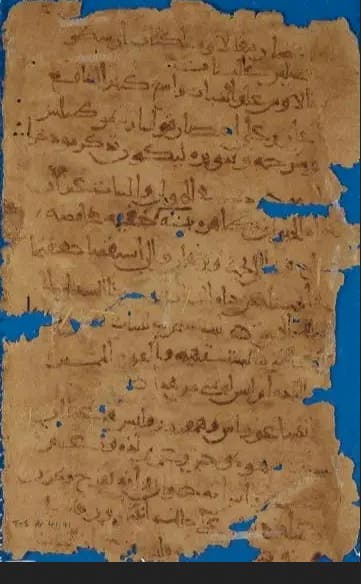Very few people know that a great general and conqueror in Islamic history, Sultan Salahuddin Ayyubi had a significant connection to a respected physician and Jewish scholar named Moses ben Maimon. Not only he was a Jewish by religion, but he was also taking care and organization of Jewish affairs in Egypt. Let’s take a brief overview of the life of Moses ben Maimon.
Egyptian scholar Hossam al-Hariri has revealed some documents related to Moses ben Maimon These documents shed light on Moses’s opinions about Muslim scholars and thinkers.
He informed the Arabic news outlet ‘Al-Arabiya.net’ that Moses ben Maimon had sent documents to his Hebrew translator Samuel ibn Tibbon. He translated many books into Hebrew, and these documents contain revealing excerpts from those books that Moses considered foundational for any solid philosophical education.
According to the documents, it is believed that the works of the Greek philosopher Aristotle had a significant influence on Moses’s views, and he played a vital role in translating Greek sciences into Arabic, contributing to the accumulation of knowledge in the Arabic world.
Aristotle’s philosophy
Moses ben Maimon’s Philosophy Hossam al-Hariri suggests that Moses ben Maimon thought it was not always easy for scholars of the Middle Ages to understand Aristotle’s philosophy. He realized the importance of studying subsequent philosophical works after Aristotle’s, involving many Muslim scholars and philosophers. In the 2nd century CE, figures like Alexander of Aphrodisias, Themistius, and the Arab thinker and philosopher Ibn Rushd, who died in 1198, were given importance for their philosophical works.

The Egyptian scholar also mentions that in the documents, Muslim philosophers often attributed the philosophy of Moses ben Maimon to the Persian philosopher Al-Farabi, particularly praising his logical works. Moses ben Maimon also appreciated the philosophical works of Ibn Bajjah and considered Ibn Sina’s books worth studying.
In these documents, Moses ben Maimon clarifies a facet of his philosophy, stating that life exists in both animals and plants. While the presence of life is evident in animals due to their motion, plants possess essential attributes like nourishment, water intake, reproduction, etc., though these are concealed. Therefore, studying plants requires greater caution.
The documents also mention the opinions of pre-Socratic philosophers Anaxagoras and Empedocles before Socrates. Both of them argued that plants experience desires, sensations, pleasure, and pain. Anaxagoras believed that plants were capable of happiness and pain.
Who is Moses ben Maimon?
Hossam al-Hariri asserts that Moses ben Maimon, also known as Rabbi Moshe ben Maimon ibn Abdallah al-Qurtubi, was born on March 30, 1135 CE. His Hebrew designation is “Rambam” (רמב), and he was popularly referred to as “Señor Moisés” in the Arab world. He was born in Cordoba, Andalusia, during the 12th century CE. His family later moved to Fez, Morocco, in 1159 and eventually settled in Fustat, Egypt.

Moses ben Maimon remained in Egypt until his death, and during his time there, he not only served as a leader in the Jewish community but also worked as a physician, treating individuals such as Sultan Salahuddin Ayyubi’s son, Shah Azfal Ali.
The final resting place of Moses ben Maimon is located in the ancient cemetery of the Abbasid Directorate in the eastern part of Egypt. The mosque built over his tomb was included in historical, religious, and architectural heritage in 1986 due to its significance.
This mosque was constructed on the same site in the late 19th century where the Maimonides resided after arriving in Egypt. It features a well whose water was utilized for the treatment of Egypt’s leaders at the time.



































